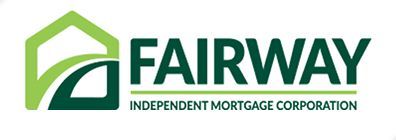Call Us
717-431-9299
FAQ
-
What is PMI?
PMI = Private Mortgage Insurance. In the event of higher LTV, lenders often require you to carry PMI, which can mean an initial premium payment at settlement, and may require a monthly fee in your mortgage, depending on the loan. Who does this insurance protect? The lender/investor, in case the borrower defaults on the loan. Why do it? PMI can be a good tool, depending on what you want to accomplish.
-
Why do mortgage people keep talking about PITI payments?
They're referring to PITI (Principal, Interest, Taxes, and Insurance). These are the 4 components of your monthly mortgage payment. Principal = the part of the monthly payment that reduces the remaining balance of the mortgage. Interest = the fee charged for borrowing money. Taxes and insurance = the monthly cost of property taxes and homeowners insurance.
-
What is a LE?
LE (Loan Estimate): In a mortgage office, you'll hear this in relation to a document included in your mortgage application paperwork. The purpose of the document is to provide you with a disclosure of the terms and cost of your loan. Percentage rate, projected amount you'll pay over the life of the loan, how many payments & for how long, etc.
-
What is a GFE?
GFE (Good Faith Estimate). A GFE is an estimation of the fees and costs that will be associated with a loan, provided by the mortgage lender to the borrower. It takes into account closing costs, loan related fees, title insurance, origination fees, taxes, etc. It is a 'best guess,' & a little like trying to predict the future, but a good mortgage lender will usually get pretty close.
-
What is this ‘right to rescind?’
Recission is the cancellation of a contract. With respect to mortgage refinancing, there is a law that gives the homeowner three days (commonly known as the recission period) to cancel a contract in some cases once it is signed if the transaction uses equity in the home as security.
-
What is a CD?
Closing Disclosure: A document that provides an itemized listing of the funds that are payable at closing. Items that appear on the statement include real estate commissions, loan fees, points and initial escrow amounts. Each item on the statement is represented by a separate number within a standardized numbering system. The totals at the bottom of the CD define the seller's net proceeds and the buyer's net payment at closing.
-
What is the difference between an Appraisal and an Assessment?
Appraisal - An estimate of the value of property, made by a qualified professional called an "appraiser." The Appraised Value is an opinion of a property's fair market value, based on an appraiser's knowledge, experience, and analysis of the property.
Assessment - An assessed value is used for local taxes levied against a property for a specific purpose, such as a sewer or street lights.
-
What is the difference between a Pre-Qual and a Pre-Approval?
A Pre-Qualification letter (or pre-qual) from your mortgage company indicates they’ve looked at your credit scores and discussed income and loan potential with you, and without much further investigation, are willing to try to help you with financing. A Pre-Approval letter indicates that your mortgage company looked at your credit scores, plus tax returns, recent bank statements and paystubs, ran your scenario through underwriting resources, and based on the information they’ve seen, believe they will be able to provide you with financing. We take it one step further with our guarantee.
-
What is DTI?
DTI = Debt to Income. This ratio compares what you owe against what you earn. Your “Back End Ratio” takes into account your monthly payment obligations (rent, mortgage, etc.) in addition to your monthly debt obligations. The Back End Ratio is the more significant factor when qualifying for a loan.
-
Why do mortgage companies verify your employment when you’re applying for a loan, sometimes more than once?
When we do a Verification of Employment (VOE), we verify your start date, position, and make sure that you're still actively employed. Since your income is one of the main considerations in qualifying you to borrow money, that ‘still employed’ part is pretty important.
-
What is LTV?
The LTV is represented as a percentage, indicating how big the loan amount is, compared to the appraised retail value of the home. 80% LTV on a home worth $100,000 would mean that the existing loan is $80,000, and the remaining $20,000 is considered equity.
-
Will my loan be sold?
When people ask this, they are usually asking who will service their loan (process their monthly payments). Fairway has started servicing more and more of our loans, enabling us to continue to provide top-tier service to our clients, even after settlement. If you have a strong preference as to the servicing of your loan, discuss your concerns with your loan officer.
-
What is the difference between a Mortgage Broker and a Mortgage Banker?
A mortgage broker generally has a collection of investors they use to place a loan. This can be good for the borrower, in that they have a range of options to select from, but the mortgage broker does not have control over the timing of the process. Processing, underwriting, funding – all of these are done on the investor’s timeline. A mortgage banker also works with investors. We have more control, however. Our processing, underwriting, closing and funding departments are in-house, giving us control over how swiftly a loan can be brought to completion.
-
What are your rates?
Online ApplicationMortgage rates shift several times a day, making it difficult to answer that question directly. To add to this, the rate available to you depends on the size of the loan you're considering, your credit standing and other factors that are specific to you. The best way to get an accurate rate quote is to fill out our secure online application or give us a call at 717-431-9299.
Branch NMLS: 2289
Licensed by the State of PA
Equal Housing Lender

Not everyone will qualify to buy a home. Mortgage interest rates, loan programs, credit standards and guidelines change frequently. Call us for more information and to discuss your plans in more detail: 717-431-9299.
All Rights Reserved | Fairway Independent Mortgage Corporation
